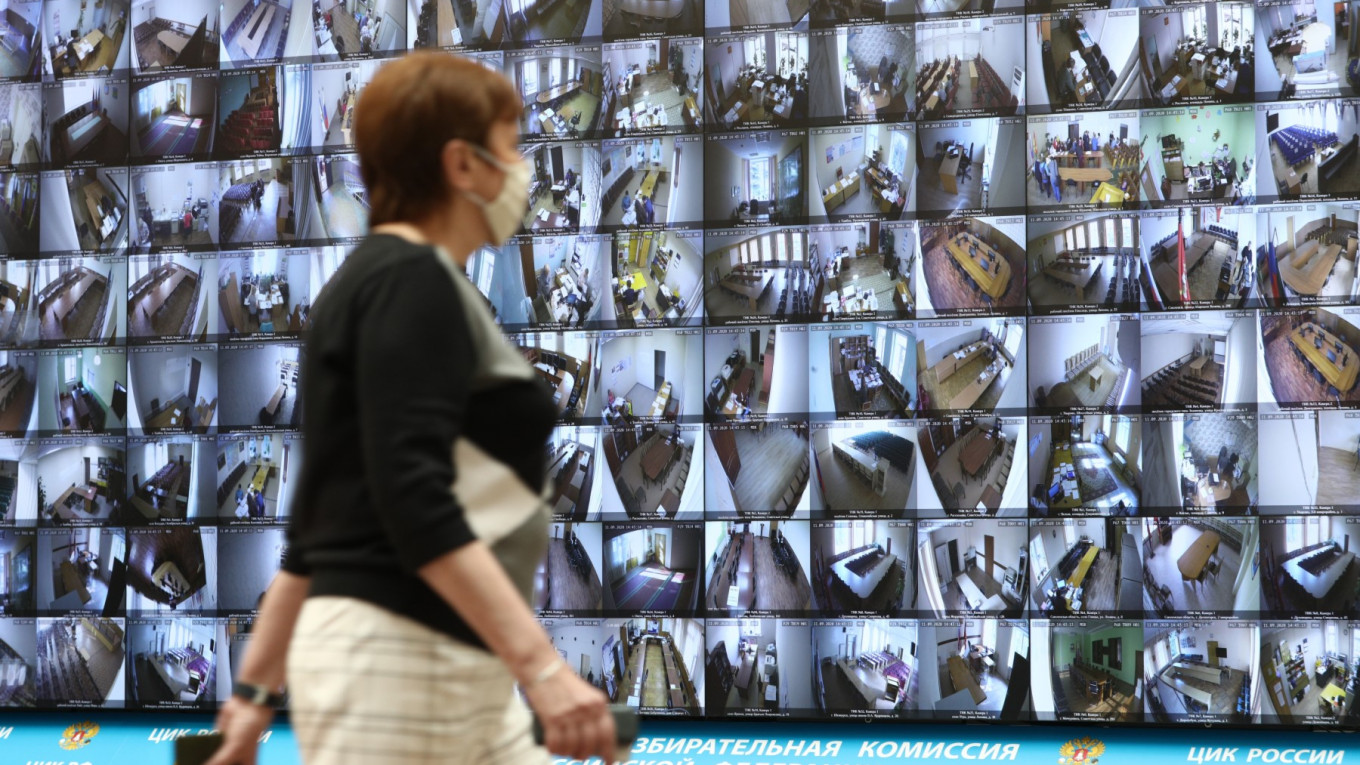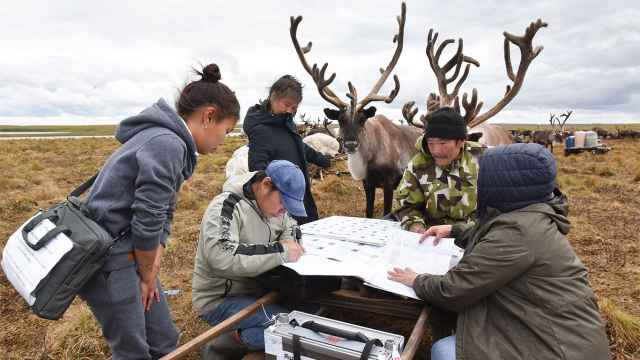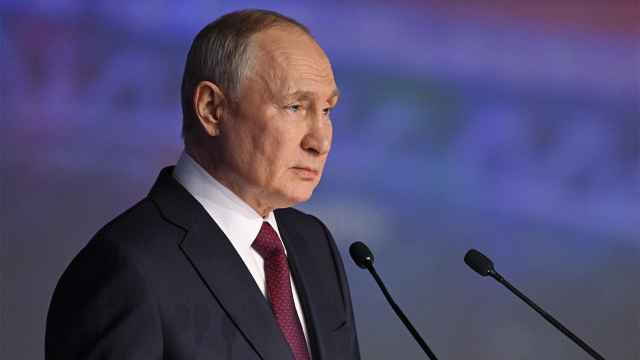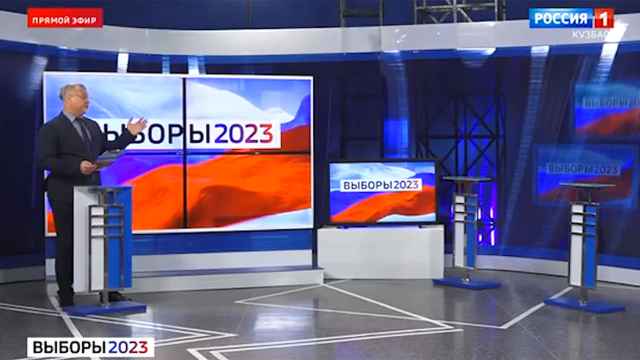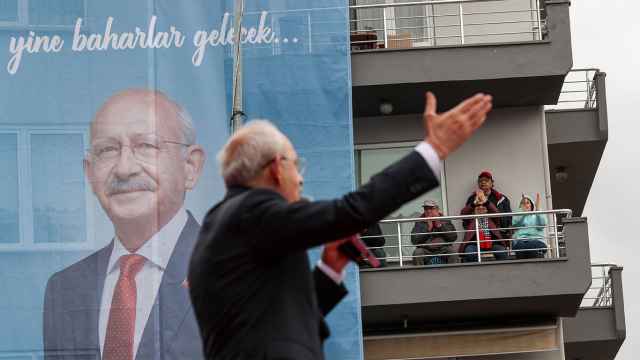Russian officials’ plans to restrict live streams from polling stations in upcoming parliamentary elections have been met with accusations of pre-emptive attempts to conceal voter fraud, including ballot stuffing.
Russia’s Central Election Committee (CEC) said Wednesday that only members, candidates and political parties will have access to the live feeds when voters go to the polls from Sept. 17-19. The CEC staggered the vote for the State Duma, the lower house of Russia’s parliament, over three days to limit the spread of coronavirus as Russia battles its deadliest wave of infections yet.
Golos, Russia’s last remaining independent election monitor, slammed the CEC’s restrictions on polling station livestreams as a “rapid degradation” of elections in Russia.
“The decision is nothing more than an attempt to hide from the public the events that will take place for three days and two nights at the polling stations,” Golos co-chairman Grigory Melkonyants said.
The pro-Kremlin United Russia party is seeking to retain its supermajority in the Duma in the September vote despite historically low approval ratings. Observers say a recent wave of police raids and detentions of opposition members, as well as tightened election laws that shut out allies of jailed Kremlin critic Alexei Navalny, are an attempt to clear the field of United Russia’s opponents.
“They’re clearly making sure that video observers don’t notice the falsifications that will spread online once again,” Melkonyants said in a statement on the watchdog’s website.
In 2012, then-Prime Minister Vladimir Putin ordered webcams to be installed in each of the country’s 95,000 polling stations at a cost of half a billion dollars. The ambitious program came in response to the largest public protests in years reacting to widespread allegations of ballot-box stuffing and other voting irregularities during the 2011 Duma elections.
“It was a big step forward: Video surveillance cameras managed to catch carousel voting, ballot stuffing, vote-counting falsifications and other violations,” Melkonyants said Wednesday.
He criticized this year’s reversal, which election officials explained in part by budget constraints due to the extended voting period, for introducing a “new logic of ‘don’t look, we have something to hide’.”
A Message from The Moscow Times:
Dear readers,
We are facing unprecedented challenges. Russia's Prosecutor General's Office has designated The Moscow Times as an "undesirable" organization, criminalizing our work and putting our staff at risk of prosecution. This follows our earlier unjust labeling as a "foreign agent."
These actions are direct attempts to silence independent journalism in Russia. The authorities claim our work "discredits the decisions of the Russian leadership." We see things differently: we strive to provide accurate, unbiased reporting on Russia.
We, the journalists of The Moscow Times, refuse to be silenced. But to continue our work, we need your help.
Your support, no matter how small, makes a world of difference. If you can, please support us monthly starting from just $2. It's quick to set up, and every contribution makes a significant impact.
By supporting The Moscow Times, you're defending open, independent journalism in the face of repression. Thank you for standing with us.
Remind me later.


